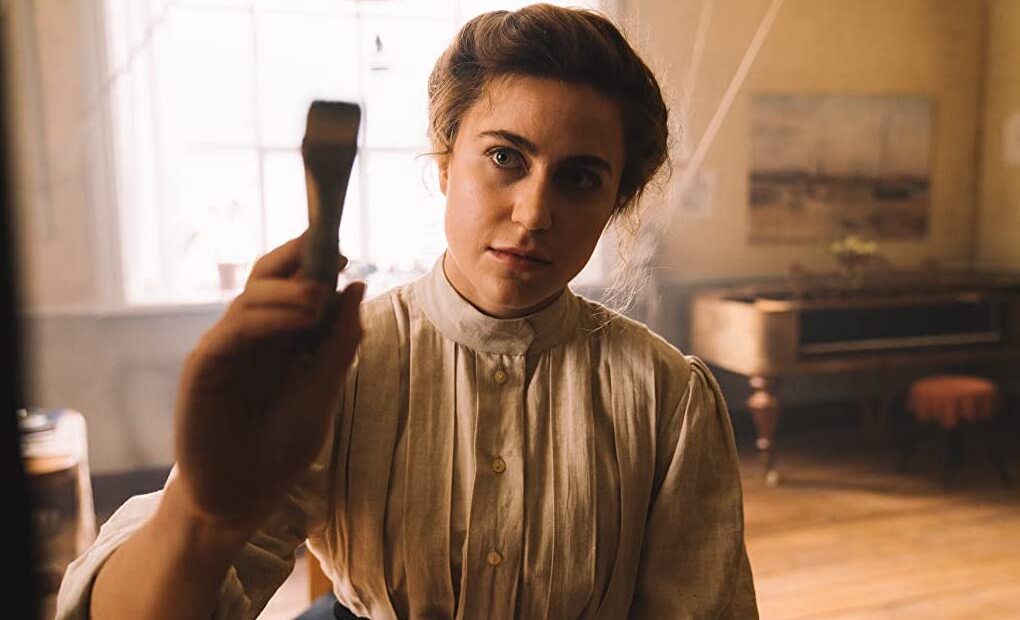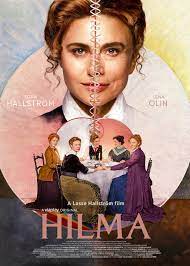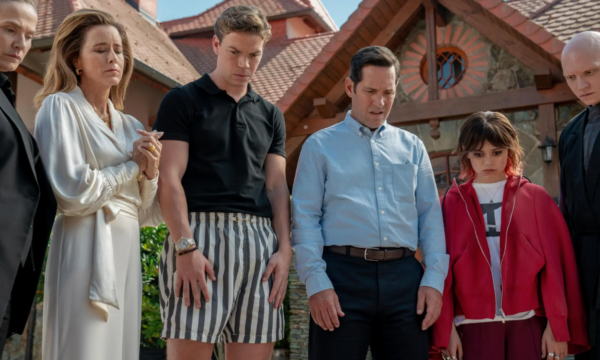Hilma

Exploring the life and legacy of Swedish artist Hilma af Klint, Hilma is the embodiment of the notion of people dying twice – once when they take their last breath, and then again the last time somebody says their name. While ridiculed throughout her living days on earth for her spiritual affinity, Klint’s legacy lives on through the new appreciation of her artwork. The film takes viewers through her back-and-forth letters and romance with fellow artist Anna Cassel, the multiple deaths in her family, and the obstacles she once faced as a woman in the world of fine art. Among other themes are LGBTQ+ relationships, women supporting women, the balance between financial transactions and intimate bonds, growing through adulthood with the support of one’s parents, and jealousy and unrequited romance.
Hilma’s greatest strength is how it leans into the abstract nature of her paintings. The scenery incorporates pastels and vibrant colours, accompanied by the creative use of angles and camera movements. This combination results in visuals that are like pieces of artwork strung together by the thread of Klint’s life. Limited perspective cleverly frames the whole film through the artist’s eyes – peeking through small spaces, the theme of hide-and-seek, close-ups into her eyes, and multiple closed doors. The cinematography changes depending on how she views things, or the direction and flow of her paintings. Animations and fading transitions highlight painting montages to reflect her creative mind. Furthermore, segues into parallel scenes – whether flashbacks, flash-forwards, or figures from her artworks – connect each phase in Klint’s life.
Feminism plays a very big role in Hilma. There are comments at every turn from different individuals about who the protagonist should be, simply based on her gender: “you can’t even tell it was painted by a woman” meant as a compliment, and “could you for once do something girls would do” as an insult. This results in a certain loss of identity for Klint – she stays true to her spiritual journey, yet constantly seeks male validation for her artwork, specifically from Rudolf Steiner. Foreshadowing and irony strengthen this thematic exploration, highlighting the more human side of the painter, despite seeming like a celestial figure with her spiritual prowess. This works wonderfully with the ending, which shows Klint finally ready to accept the work that she has done.
Mae Trumata
Hilma is released in select cinemas on 28th October 2022.
Watch the trailer for Hilma here:





















Facebook
Twitter
Instagram
YouTube
RSS